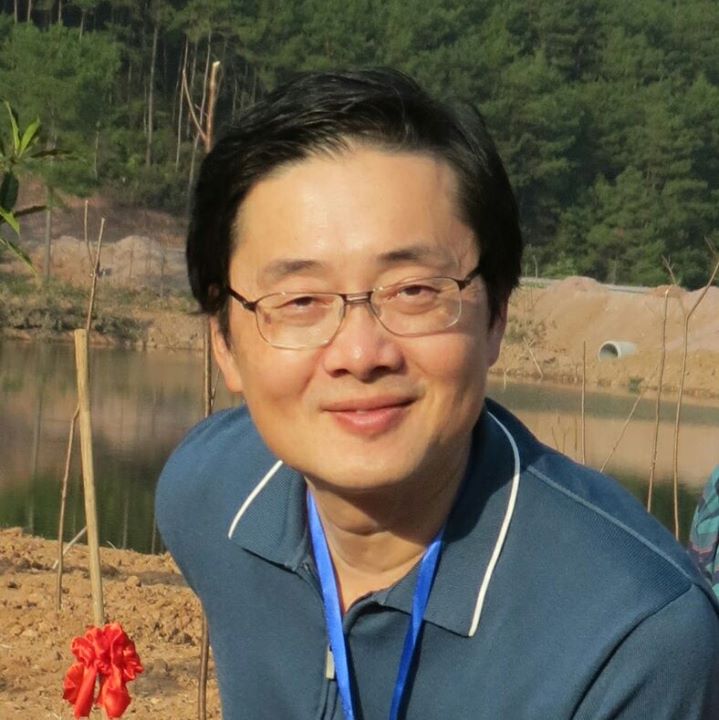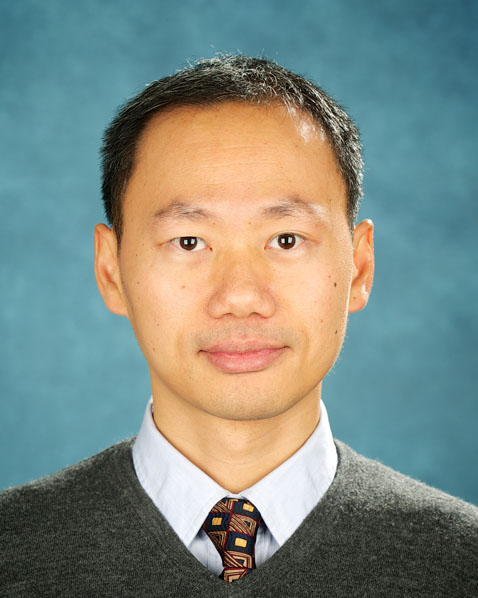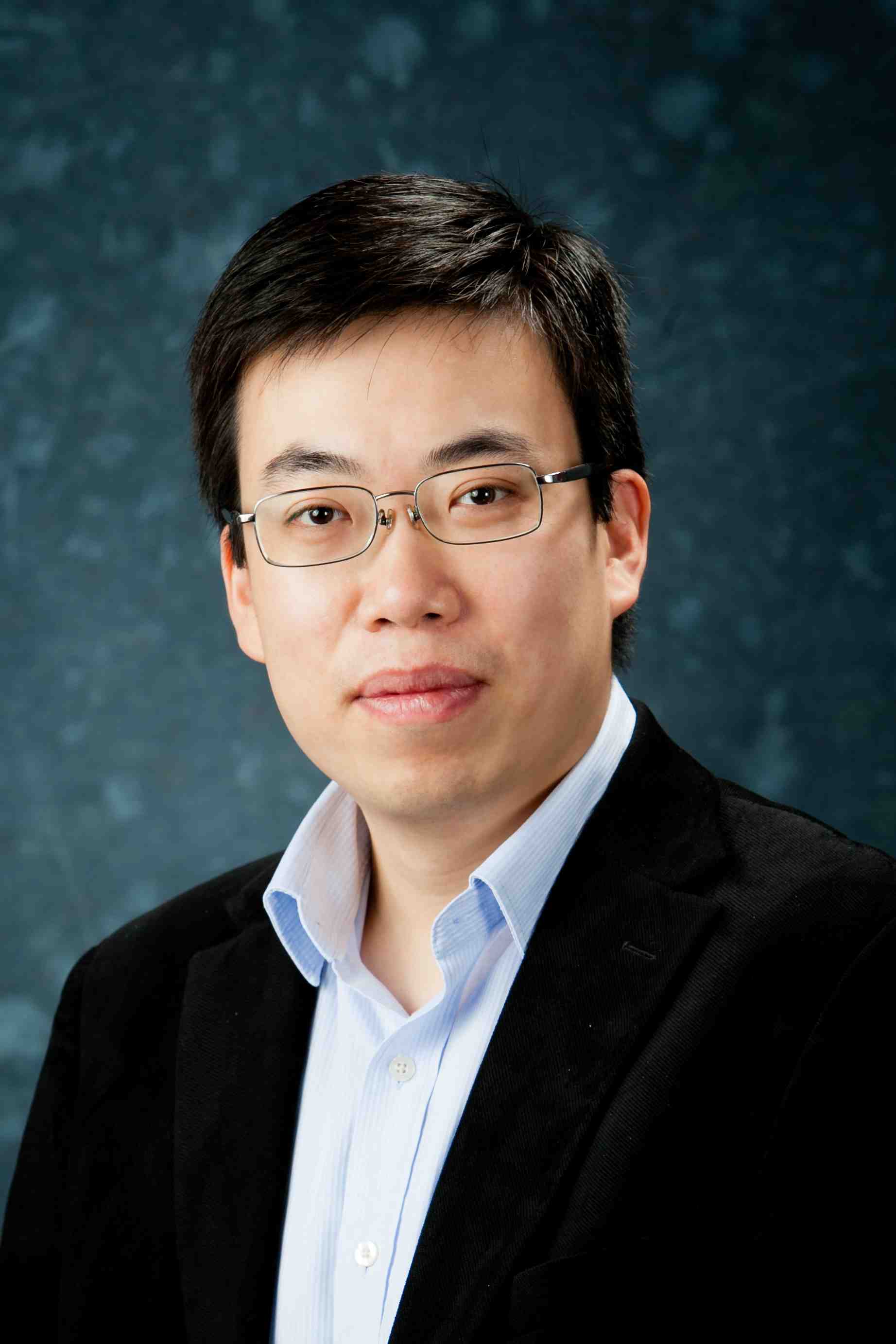Contact Us
Important Dates
Full paper submission deadline:
Mar 20, 2016
Acceptance Notification:
April 20, 2016
Camera Ready Deadline
May 6, 2016
Registration Deadline
May 10, 2016
Conference Date:
July 23-25, 2016
Paper Submission

Keynotes
NaNA2016 Keynote 1: | |

|
Speaker:Prof. Han-Chieh ChaoTitle:Towards 5G Mobile Communication TechnologyAffiliation:President, National Ilan University, Taiwan |
Abstract:The third generation (3G) and fourth generation (4G) of mobile phone mobile communication technology have been widely used and launched in the world. Since the infrastructures like Base Stations (BS) and Evolved Node B (eNBs) are deployed everywhere, efficiency is a vital issue for the fifth generation (5G). However, 5G mobile communication is still just being set up. Some technologies and research issues are announced and investigated. This keynote speech introduces the expectative performance goals of 5G. Then, some potential technologies for 5G cellular mobile communications are discussed, such as Millimeter Wave Communication (mmWave), Non-orthogonal Multiple Access (NOMA), Massive MIMO, Cloud Radio Access Network (C-RAN), Heterogeneous Network (HetNet), and so on. Finally, some tentative 5G scenarios are introduced. Our blueprint for HetNet in 5G is also given, such as Cloud Media on Named Data Network Platform over 5G Mobile Communication, and Software-Defined Wireless Bacteria-Inspired Network over 5G Mobile Communication. |
|
Short bio:Dr. Han-Chieh Chao is a joint appointed Full Professor of the Department of Computer Science & Information Engineering and Electronic Engineering of National Ilan University, I-Lan, Taiwan (NIU). He is serving as the President since August 2010 for NIU as well. He was the Director of the Computer Center for Ministry of Education Taiwan from September 2008 to July 2010. His research interests include High Speed Networks, Wireless Networks, IPv6 based Networks, Digital Creative Arts, e-Government and Digital Divide. He received his MS and Ph.D. degrees in Electrical Engineering from Purdue University in 1989 and 1993 respectively. He has authored or co-authored 4 books and has published about 400 refereed professional research papers. He has completed more than 100 MSEE thesis students and 4 PhD students. Dr. Chao has been invited frequently to give talks at national and international conferences and research organizations. Dr. Chao is the Editor-in-Chief for IET Networks, Journal of Internet Technology, International Journal of Internet Protocol Technology, and International Journal of Ad Hoc and Ubiquitous Computing. Dr. Chao has served as the guest editors for Mobile Networking and Applications (ACM MONET), IEEE JSAC, IEEE Communications Magazine, IEEE Systems Journal, Computer Communications, IEE Proceedings Communications, the Computer Journal, Telecommunication Systems, Wireless Personal Communications, and Wireless Communications & Mobile Computing. Dr. Chao is an IEEE senior member and a Fellow of IET (IEE). |
|
NaNA2016 Keynote 2: | |

|
Speaker:Prof. Ben LiangTitle:Stochastic Geometric Analysis of Handoff Rates in Heterogeneous Wireless NetworksAffiliation:University of Toronto, Canada |
Abstract:Modern wireless networks are characterized by multiple tiers of base stations that often are irregularly placed and transmit with diverse power levels. This multi-tier heterogeneity brings great challenge to the analysis and design of mobile communication systems. In particular, intra-tier and inter-tier handoffs are difficult to quantify due to the highly random cell shapes and arbitrary user movement. In this talk, we present a new analysis framework base on stochastic geometric tools to characterize the rates of all handoff types experienced by an active user. We study several scenarios where the base stations independently form tiers of Poisson point processes or Poisson cluster processes, or cluster together to serve each user cooperatively. We further discuss the tradeoff between handoff rates and data rates when each mobile user is able to select its own base-station tiers or cluster size for network access. |
|
Short bio:Ben Liang is a professor (July 2012-present) in the Department of Electrical and Computer Engineering, University of Toronto. He received Ph.D. from Cornell University in Electrical Engineering with Minor in Computer Science, August 2001. He has won the awards: Best Paper Award in the ACM International Conference on Modeling, Analysis and Simulation of Wireless and Mobile Systems (MSWiM), 2013 (one award/42 accepted full papers/160 submissions); Finalist for Best Paper Award in the USENIX International Conference on Autonomic Computing (ICAC), 2013 (three finalists/18 accepted full papers/73 submissions); Finalist for Best Paper Award in the IEEE Conference on Computer Communications (INFOCOM), 2010 (three finalists/276 accepted full papers/1575 submissions); Early Researcher Award (ERA), Ontario Ministry of Research and Innovation, 2007; Commendation for teaching excellent in ECE department, spring 2005 and fall 2007; Runner-up Best Paper Award in the International Conference on Quality of Service in Heterogeneous Wired/Wireless Networks (QShine), 2006; Best Paper Award in the IFIP Networking Conference, 2005 (one award/106 accepted papers/430 submissions) Intel Foundation Graduate Fellowship, 2000; Lockheed Martin Fellowship in Communication and Information Technologies, 1999; Richard W. Block Award for the highest ranking graduate, Polytechnic University, 1997; William L. Everitt Student Award of Excellence, Polytechnic University, 1997; Weber Scholar, Polytechnic University, 1995 and 1996; He has served as: Co-chair, IEEE Conference on Computer Communications (Infocom) Workshop on Communications and Networking Techniques for Contemporary Video, 2014; TPC Meeting Arrangement Co-chair, IEEE Conference on Computer Communications (Infocom), 2014; Technical Track Co-chair, Local and Personal Area Networks Track in the IEEE International Symposium on Personal, Indoor and Mobile Radio Communications (PIMRC),2011; Invited-paper session co-organizer and co-chair, Asilomar Conference on Signals, Systems,and Computers, 2008; General Co-chair, Ambient Media and Systems (Ambi-sys), 2008; Best Student Paper Award sub-committee, ACM International Conference on Mobile Computing and Networking (MobiCom), 2007; Publicity Chair, Symposium on Next Generation Mobile Networks (NGMN), 2007; Technical Vice Co-chair, IEEE International Conference on Mobile Ad-hoc and Sensor Systems (MASS), 2006; Technical Track Co-chair, International Conference on Communications Circuits and Systems (ICCCAS), 2006. |
|
NaNA2016 Keynote 3 | |

|
Speaker:Prof. Jianwei HuangTitle:Incentive Mechanisms for User-Provided NetworksAffiliation:Chinese University of Hong Kong |
Abstract:The fast growing mobile data demands and the proliferation of advanced mobile devices lead to the emergence of user-provided networks (UPNs), which improve user experiences by exploiting the diverse communication needs and resources of different users. The success of UPNs, however, relies on carefully designed incentive mechanisms that effectively encourage voluntary participation and cooperation of users. Motivated by recently launched UPN business models, in this talk we will introduce two new mobile UPN incentive mechanisms that take users' energy consumption and data usage costs into consideration. The first one is motivated by the social bandwidth trading scheme pioneered by Karma (https://yourkarma.com/), and we design an optimal hybrid pricing scheme that combines usage-based data pricing and quota reimbursement for network-assisted mobile UPNs. The second one is motivated by the crowd-sourced Internet connectivity enabled by OpenGarden (https://opengarden.com/), and we design a virtual currency based scheme that incentivizes cooperation in autonomous mobile UPNs. For more information, please see http://ncel.ie.cuhk.edu.hk/content/user-provided-networks. |
|
Short bio:Jianwei Huang (S'01-M'06-SM'11-F'16) is an Associate Professor and Director of the Network Communications and Economics Lab (ncel.ie.cuhk.edu.hk), in the Department of Information Engineering at the Chinese University of Hong Kong. He received Ph.D. from Northwestern University in 2005, and worked as a Postdoc Research Associate at Princeton University during 2005-2007. His main research interests are in the area of network economics and games, with applications in wireless communications, networking, and smart grid. He is a Fellow of IEEE, and a Distinguished Lecturer of IEEE Communications Society (2015-2016).Dr. Huang is the co-recipient of 8 Best Paper Awards, including IEEE Marconi Prize Paper Award in Wireless Communications in 2011, and Best (Student) Paper Awards from IEEE WiOpt 2015, IEEE WiOpt 2014, IEEE WiOpt 2013, IEEE SmartGridComm 2012, WiCON 2011, IEEE GLOBECOM 2010, and APCC 2009. He has co-authored four books: "Wireless Network Pricing," "Monotonic Optimization in Communication and Networking Systems," "Cognitive Mobile Virtual Network Operator Games," and "Social Cognitive Radio Networks". He is a co-author of six ESI Highly Cited Papers. He received the CUHK Young Researcher Award in 2014 and IEEE ComSoc Asia-Pacific Outstanding Young Researcher Award in 2009. Dr. Huang has served as an Editor of IEEE Transactions on Cognitive Communications and Networking (2015-), Editor of IEEE Transactions on Wireless Communications (2010-2015), Editor of IEEE Journal on Selected Areas in Communications - Cognitive Radio Series (2011-2014), Editor and Associate Editor-in-Chief of IEEE Communications Society Technology News (2012-2014). He has served as a Guest Editor of IEEE Transactions on Smart Grid special issue on "Big Data Analytics for Grid Modernization" (2016), IEEE Network special issue on "Smart Data Pricing" (2016), IEEE Journal on Selected Areas in Communications special issues on "Game Theory for Networks" (2016), "Economics of Communication Networks and Systems" (2012), and "Game Theory in Communication Systems" (2008), and IEEE Communications Magazine feature topic on "Communications Network Economics" (2012). Dr. Huang has served as Vice Chair (2015-2016) of IEEE Communications Society Cognitive Network Technical Committee, Chair (2012-2014) and Vice Chair (2010-2012) of IEEE Communications Society Multimedia Communications Technical Committee, a Steering Committee Member of IEEE Transactions on Multimedia (2012-2014) and IEEE International Conference on Multimedia & Expo (2012-2014). He has served as the TPC Co-Chair of IEEE WiOpt 2017 and 2012, IEEE SDP 2016 and 2015, IEEE ICCC 2015 (Wireless Communications System Symposium) and 2012 (Communication Theory and Security Symposium), NetGCoop 2014, IEEE SmartGridComm 2014 (Demand Response and Dynamic Pricing Symposium), IEEE GLOBECOM 2013 (Selected Areas of Communications Symposium) and 2010 (Wireless Communications Symposium), IWCMC 2010 (Mobile Computing Symposium), and GameNets 2009. He will serve as a General Co-Chair of IEEE WiOpt 2018. He is a frequent TPC member of leading networking conferences such as INFOCOM and MobiHoc. He is the recipient of IEEE ComSoc Multimedia Communications Technical Committee Distinguished Service Award in 2015 and IEEE GLOBECOM Outstanding Service Award in 2010. |
|



